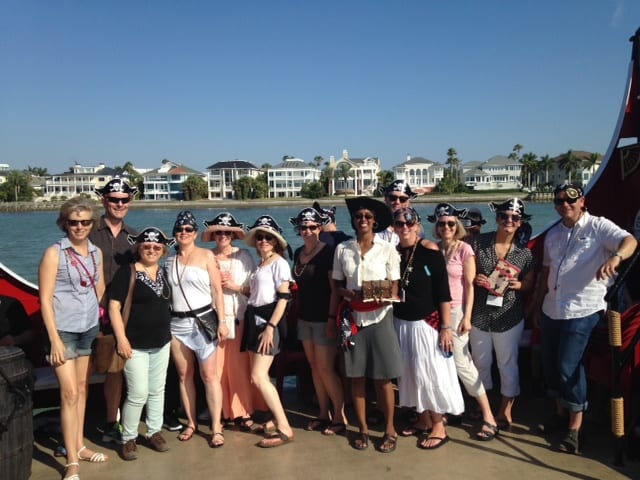Posted by: Kathryn Garber, PhD, Chair of the ASHG Communications Committee
I’m just back from the annual meeting of the Association of Professors of Human and Medical Genetics (APHMG), and, as always, my head is swimming with ideas. For those not familiar with APHMG, it is a group that promotes human and medical genetics education in graduate and medical schools across North America. It’s a meeting where we spend most of our time talking about teaching and learning, but the fact that we are all geneticists means that we have a common understanding of the science we need to teach. We also discuss more practical issues of program design and oversight, particularly for medical students, residents and fellows.

The focus of this year’s meeting was adult learning. Hope Ricciotti from Beth Israel Deaconess Hospital kicked things off with some valuable hints on interacting with millennial learners, including ideas on how to structure feedback to members of the “trophy generation”, who often aren’t used to negative feedback. Kadriye Lewis from Children’s Mercy Hospital in Kansas City then put adult learning in perspective through illustrations of different learning theories and their implementation. Next, Sarah Farrell and members of her team from Apple Education demonstrated tools and resources for use in education, including eBooks and courses that can be created or used by faculty, and apps that can foster interactivity in the classroom.
The second day of the meeting had a scientific focus on big data. Mike Murray from Geisinger described their approach to return of results to participants in their population-based GenomeFIRST project. He was followed by Sarah Elsea from Baylor, who discussed the use of large scale metabolomic profiles to identify inborn errors of metabolism. Finally, Piero Rinaldo from the Mayo Clinic argued passionately that we should stop using reference cutoffs to interpret biomarkers for metabolic disease, and should replace this approach with an assessment of the likelihood that an individual’s biomarker profile is more consistent with a normal or disease profile, based on large numbers of previously tested samples.
As usual, the annual meeting also included workshops by three special interest groups (SIGs), each one focused on a different set of trainees: medical genetics residents, medical students, and clinical laboratory fellows. I attended the medical student education workshop, which this year was co-sponsored by the Association of Biochemistry Educators (ABE). This allowed us to focus on topic integration across the undergraduate medical curriculum, and we had a productive small group session in which biochemists and geneticists worked together to develop teaching cases that integrate the two subjects. Later in the day, we brainstormed the inclusion of ethics in integrated medical curricula, as well as approaches to bringing the basic sciences into the clinical curriculum.
For me – and I think for many others – the most valuable part of the APHMG meeting is getting to know people who are teaching genetics at medical schools and hospitals across the country. We share ideas, create materials together, and establish collaborative projects that continue throughout the year. One of the key products of these interactions in recent years has been the sharing of resources that can be used broadly within the SIGs, including cases, assessments, evaluations, competency frameworks, and curricula. The Genetics Education Resource Exchange houses a number of these resources focused on undergraduate medical education. If your institution is an APHMG member, you can access this valuable resource. (Full disclosure: I was a member of the group that initiated this resource and was the founding curator of the resource exchange, a job that now belongs to Andrew Sobering from St. George’s University.)
If you want to meet and learn from people who are passionate about genetics education, this is the place, and I encourage you to join this supportive and collaborative group at our meeting in Santa Fe next spring. As you can see in the picture of our pirate ship excursion, we also make time for fun. Now, I’m off to take all of the great ideas that were sparked at the meeting and work on my syllabus for next semester.
Kate Garber, PhD, is an Associate Professor at Emory University. She is involved in designing and implementing human genetics training for physician assistants, genetic counselors, and medical students. Read more about Kate’s career.
